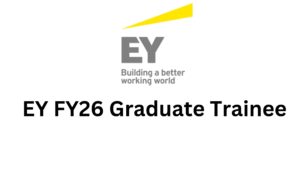
Table of Contents
Introduction
When you’re looking to advance in your career, it’s easy to get wrapped up in broad strategies like networking or the search for shortcuts to success. But at the core of sustained career growth is something more grounded and deeply personal—your skills and expertise. Making a commitment to mastering your craft not only sets you apart but opens doors to fulfilling, enduring career opportunities. Here, we’ll explore why skill-building is an essential pillar of professional success, how to make it a part of your everyday routine, and ways to ensure you’re always progressing in your field.
How to Master your Craft
It’s a commonly held belief that “it’s all about who you know,” but this perspective underestimates the long-term impact of skill mastery. While networking can help you connect with opportunities, skill and expertise ensure that you’ll succeed once you get there. Being recognized as an expert in your field not only builds trust among colleagues and leaders but also lays the foundation for a solid professional reputation. Here are some compelling reasons why focusing on your craft is critical:
- Competitive Advantage: In today’s fast-paced job market, having niche or in-depth skills gives you a significant edge over others. When your skills are polished and up-to-date, it signals your value to employers and clients, helping you stand out from the competition.
- Career Satisfaction and Confidence: Mastery builds confidence and job satisfaction. When you’re equipped with refined skills, you naturally feel more capable and engaged in your role, which contributes to a greater sense of purpose and fulfillment.
- Lasting Impact on Your Career Path: Developing expertise allows you to command respect and take control of your career trajectory. Instead of relying solely on connections, your competence enables you to lead, innovate, and make impactful contributions to your field.
Steps to Mastering Your Craft for Career Success
The journey to skill mastery isn’t a sprint—it’s a marathon that requires continuous effort, dedication, and focus. Here are key steps to keep you on the path toward skill mastery.
1. Identify Core Skills Needed in Your Field
Start by identifying the essential skills in your profession. Speak to leaders in your field, research job descriptions for senior roles, and look into certifications that are highly regarded. This will give you a clear picture of the skills that are both foundational and in demand. Make a list of these skills, and assess where you currently stand with each.
2. Embrace a Growth Mindset
Skill mastery is a journey of continuous learning, which means a growth mindset is key. Accept that there’s always room to grow, regardless of how advanced you may feel. Approach challenges as opportunities to improve rather than obstacles to avoid. This mindset shift will enable you to welcome constructive feedback, adapt to new changes, and continuously evolve.
💬 Get Paid in Dollars Just by Chatting With Lonely People
Imagine earning daily dollar income from anywhere in the world — no degree, no experience, no interviews — just your phone or laptop.
People are getting paid simply to chat, listen, and keep others company online. This short ebook reveals:
- ✔ Legit platforms that pay in USD
- ✔ How Africans can register & withdraw successfully
- ✔ What to say to keep conversations paid
- ✔ How beginners start with zero experience
Instant download • Works worldwide • Beginner-friendly
3. Set Specific, Achievable Goals for Skill Development
Mastery doesn’t happen overnight; it’s achieved through small, consistent steps. Break down your goals into specific, actionable steps. If your goal is to learn advanced Excel functions, for example, set a target of learning one new function each week and applying it in your current projects. Over time, these small, incremental goals add up to significant expertise.
4. Invest in Quality Learning Resources
To build a solid knowledge base, make use of high-quality resources, such as online courses, certifications, webinars, and industry-specific publications. Many reputable platforms, such as Coursera, LinkedIn Learning, and Udacity, offer courses taught by professionals in the field. By investing time and sometimes a small amount of money in these resources, you’re gaining access to valuable insights and best practices from top experts.
5. Seek Hands-On Experience Through Projects and Challenges
Skill-building comes alive when applied to real-world scenarios. Volunteer for projects, take on freelance work, or engage in industry challenges that allow you to use the skills you’re developing. Hands-on experience not only cements your learning but also reveals nuances you may not encounter in a purely academic setting. For example, if you’re learning to code, build a small app or website; if you’re studying project management, manage a local event or volunteer for a leadership role in your community.
6. Reflect and Track Your Progress Regularly
Regularly evaluating your progress is essential to keeping yourself on track and motivated. Every few months, take a moment to reflect on what you’ve learned and accomplished. Identify areas that need improvement and celebrate the milestones you’ve achieved. Tracking progress can be as simple as keeping a learning journal or creating a digital portfolio of projects that showcase your expertise.
7. Find a Mentor or Join a Community for Feedback
While skill-building is an individual journey, feedback from others can offer new perspectives and insights. Look for mentors within your organization or join professional communities where you can share your experiences, learn from others, and receive constructive feedback. Mentorship and community involvement provide support and accountability, making your skill-building journey more rewarding.
Keeping Your Skills Current
The world of work is constantly changing, which means your skills should too. Stay informed about the latest trends and technologies by following industry news, attending conferences, and updating your skills regularly. Keeping your expertise current ensures that you stay relevant and valuable to any organization, regardless of the shifts in the job market.
The Lasting Impact of Mastery on Your Career Path
When you commit to mastering your craft, you’re setting the foundation for a career built on capability and respect. Your skills become your calling card, a testament to the value you bring. Moreover, skill mastery offers a freedom not often discussed: the freedom to shape your career in a way that’s both impactful and fulfilling.
In essence, while networking may open doors, it’s skill and expertise that give you the strength to walk through them confidently. Let mastery be your guiding principle, and you’ll find that your career takes on a level of depth, respect, and success that mere connections alone could never achieve.
For more information, read this article by Kforce.
See also:
Valencia College Global Achievers Scholarship 2025/2026 for International Students: Apply Now!
Coca-Cola Scholarship 2024–25: Apply Now!
The University of Turin Scholarships 2024/25 in Italy: Apply Now!
🔥 Want to Make Money Online the Right Way?
Discover how smart people are quietly earning with AI, Email Marketing, CPA, LinkedIn, Online Teaching & Content Creation.
This is not theory — it’s a step-by-step system.
👉 Get the Ebook Now










